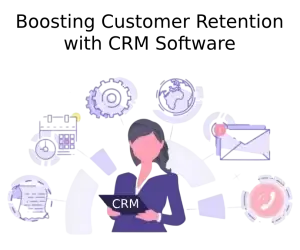Enterprise Resource Planning systems are evolving at a never-before-seen pace, and businesses in the UAE are leading the charge. By 2025, this software will be more adaptable, intelligent, and connected.
In turn, the benefits will be felt across many industries such as manufacturing, retail, and logistics while being adapted into large corporations and small and medium-sized enterprises.
A Brief History of ERP Systems
The Beginnings of ERP: From MRP to Integrated Systems
ERP systems originated in the manufacturing industry as MRP software to manage inventory and production scheduling.
Over time, these systems evolved to include increasingly integrated business functions: finance, human resources, and supply chain management.
Key Events in the History of ERP Development
Therefore, the introduction of ERP platforms based on the cloud brought a real inflection point in ERP evolution, which provided access to updated data for any business without investment in heavy infrastructure.
This business shift has enabled organizations to smooth operations, reduce costs, and promote collaboration between departments.
Emerging Trends in ERP Systems for 2025
Integration of Artificial Intelligence and Machine Learning
By the year 2025, ERP systems will be more integrated into AI and machine learning, which promises smarter and data-driven decision-making.
Predictive analytics can enable companies to fine-tune operational efficiency, minimize risks, and optimize resources.
This will facilitate industries with huge requirements, such as manufacturing and logistics, by guaranteeing that real-time data streams for efficiency drive and innovation encouragement in their way.
Cloud ERP: Future of Flexible and Scalable Solution
Cloud ERP will continue to lead and provide flexibility for UAE businesses in their expansion and scaling, offering the ability to grow when and how desired without traditional systems overhead.
For SMEs, the facilitation of cloud ERP systems in the rapid deployment of low-cost solutions will be effectual, while large enterprises will benefit from the greater integration and centralization of business functions.
Key Benefits of Next-Generation ERP Systems
Enhanced Data Analytics for Better Decision Making
The ERP system will further empower enterprises to analyze trends, predict any change in the market, and make informed decisions on time with increasingly advanced data analytics.
For example, retailers can use ERP analytics for demand forecasting, optimization of stocking, and enhancement of customer experiences.
Improved Automation and Operational Efficiency
Automation will be the bedrock on which next-generation ERP systems reduce manual tasks and heighten productivity.
Order processing, inventory management, and financial reporting are some of the areas wherein a business can upgrade its operations to save costs and win efficiency.
How the UAE Market is Shaping ERP Evolution
The Rise of Smart Cities and ERP Systems
The UAE’s move towards smart city initiatives also influences ERP software, with the incorporation of IoT and real-time data analytics within the ERP framework.
This will further connect industries related to logistics and manufacturing for smarter decision-making and responsiveness of operations.
Government Initiatives and ERP Adoption in UAE
The UAE government has already undertaken several e-transformation projects, like Dubai Smart City, to create an appropriate atmosphere for accelerating ERP adoption.
Such initiatives accelerate the process of improving infrastructure and providing an enabling environment in which businesses, including SMEs, can easily adopt an ERP solution.
Preparing for the Future: Staying Ahead in ERP
Scalable ERP Solution Implementation
Scalability of the ERP adoption for large enterprises and SMEs shall be one of the main considerations. The ERP solution must grow with the business to accommodate new products or services or expand into markets without having to bear the high cost of a complete system overhaul.
Future-Proofing ERP Investments
In addition, with new technologies emerging, UAE businesses must ensure their ERP solutions are agile enough to integrate AI, machine learning, and IoT.
This will save them from costly system upgrades shortly and allow them to remain competitive for a longer term.
Problems of ERP Adoption and How to Overcome Them
Challenge: Integration and Customization
Among the major issues that businesses have when applying ERP systems is that of integration with current software and processes. It can be pretty difficult to customize the system to business needs.
Solution: Choosing an ERP vendor in Dubai, UAE that provides customized solutions for various industries helps minimize implementation challenges.
Additionally, businesses must ensure that the ERP systems they adopt are flexible enough to integrate future technologies as they emerge.
Problem: High Initial Investment Costs
Implementation costs for these systems have proven to be quite expensive, mainly for SMEs. These involve software costs, training costs, and infrastructural costs.
Solution: Businesses must use a cloud-based ERP solution to reduce the upfront costs needed for deployment. This also means scalability in pricing models is observed.
In addition, considering ERP solutions that are covered with comprehensive support and training will minimize long-term costs.





